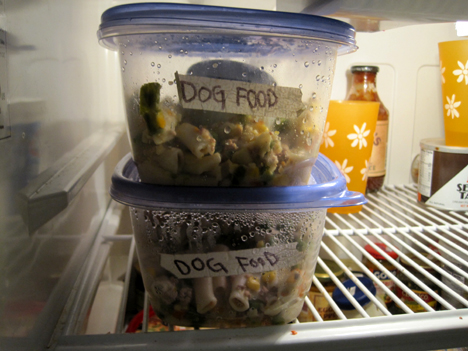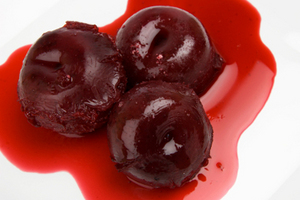Federal prisoners in Texas unknowingly ate pet food due to problems with the resale of meat from an East Texas food company that specializes in fajita meat, according to federal authorities.
The Dallas Morning News reports John Soules Foods, Inc. of Tyler has agreed to pay $392,000 to settle a case brought by the U.S. Attorney’s Office and the U.S. Department of Agriculture.
It involved raw “beef trimmings” that were intended for pet food cans but ended up being eaten by humans.
 The government’s three-year investigation found that the problems occurred in late 2006 and early 2007.
The government’s three-year investigation found that the problems occurred in late 2006 and early 2007.
John Soules Foods had problems “getting some of their beef trimmings product to freeze properly,” authorities said.
As a result, the company sold some boxes of those trimmings to a meat broker who agreed to sell it as pet food, according to the U.S. Attorney’s Office. The boxes were not marked as pet food.
That broker violated the agreement and sold the trimmings to another broker for human food. Some of it ended up being sold to the Federal Bureau of Prisons for human consumption.

 other patrons and guests of the Ontario government.
other patrons and guests of the Ontario government. based products like powdered fruit drink to sweeten it.
based products like powdered fruit drink to sweeten it. they often hide in the cell’s toilet, and when those foods are in an anaerobic environment they can create a breeding ground for the bacteria.
they often hide in the cell’s toilet, and when those foods are in an anaerobic environment they can create a breeding ground for the bacteria. of cases of out-of-date food from the school lunch program to state prisons and a county jail.
of cases of out-of-date food from the school lunch program to state prisons and a county jail. inconsistent results compared to more modern nitrate and nitrite compounds. Even so, saltpetre is still used in some food applications, such as charcuterie and the brine used to make corned beef.
inconsistent results compared to more modern nitrate and nitrite compounds. Even so, saltpetre is still used in some food applications, such as charcuterie and the brine used to make corned beef. infected with salmonella.
infected with salmonella.
 penalties for those who knowingly market unsafe food.
penalties for those who knowingly market unsafe food. Worse, to have the runs while going to the bathroom without a door.
Worse, to have the runs while going to the bathroom without a door.